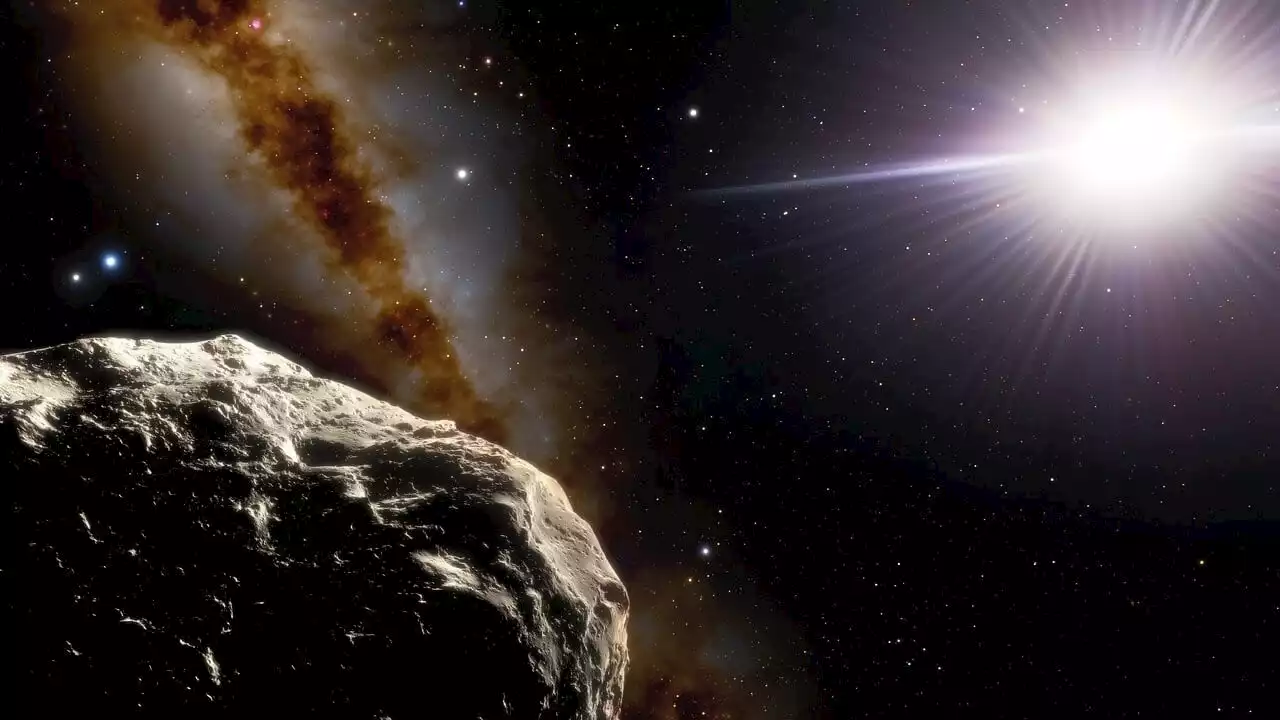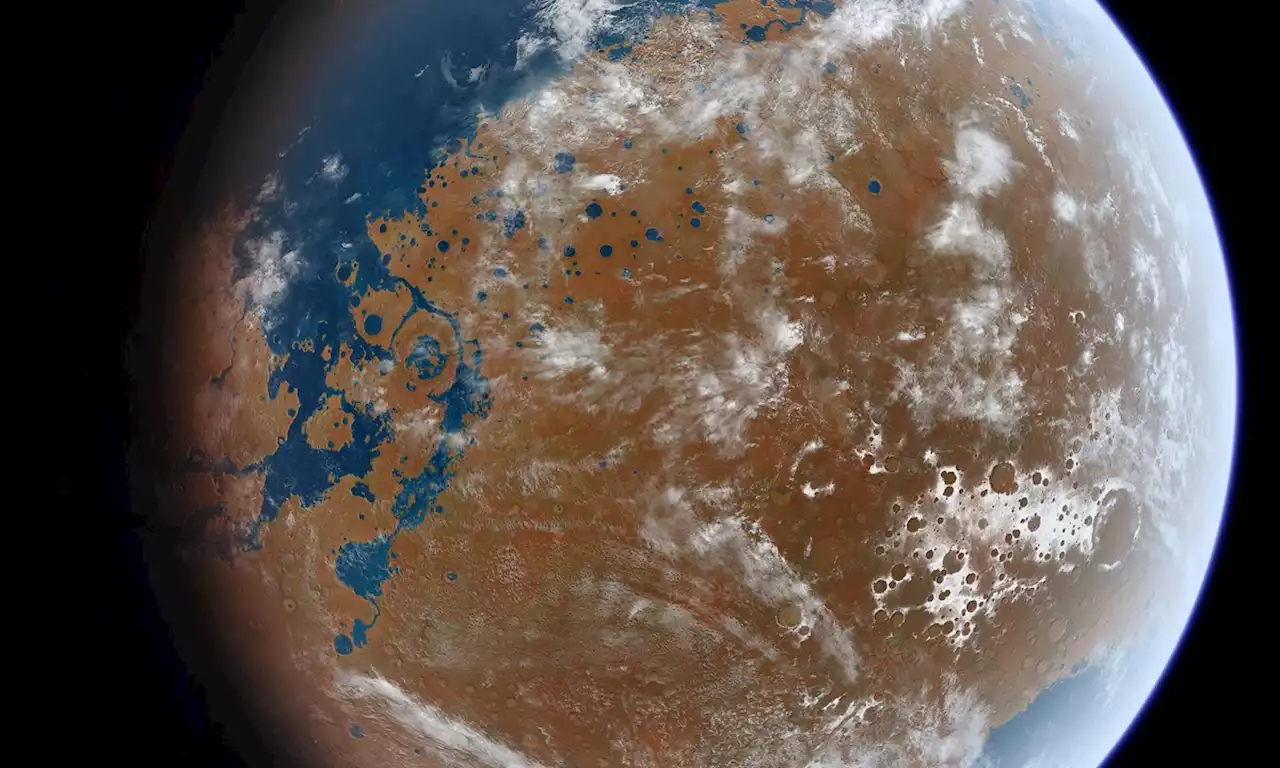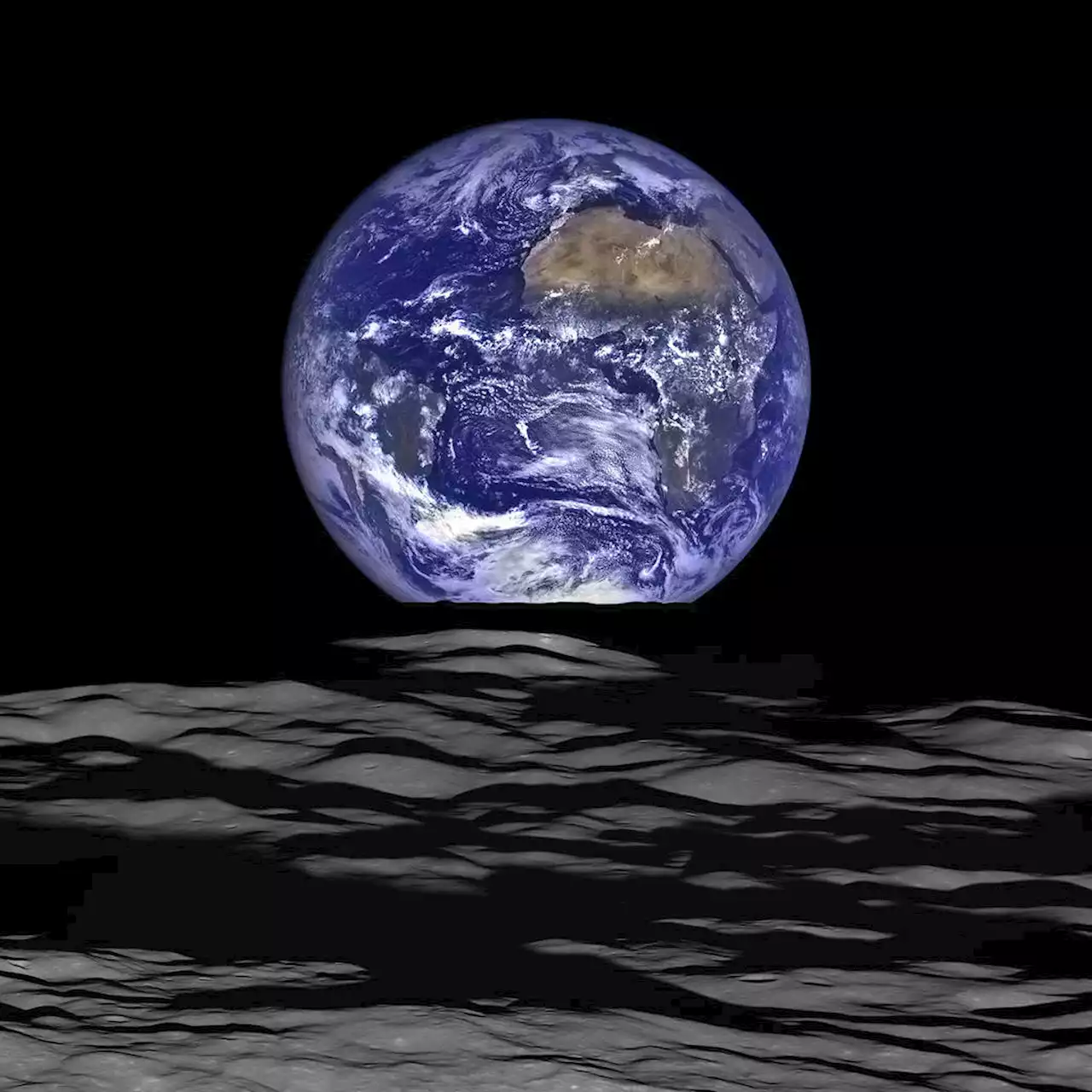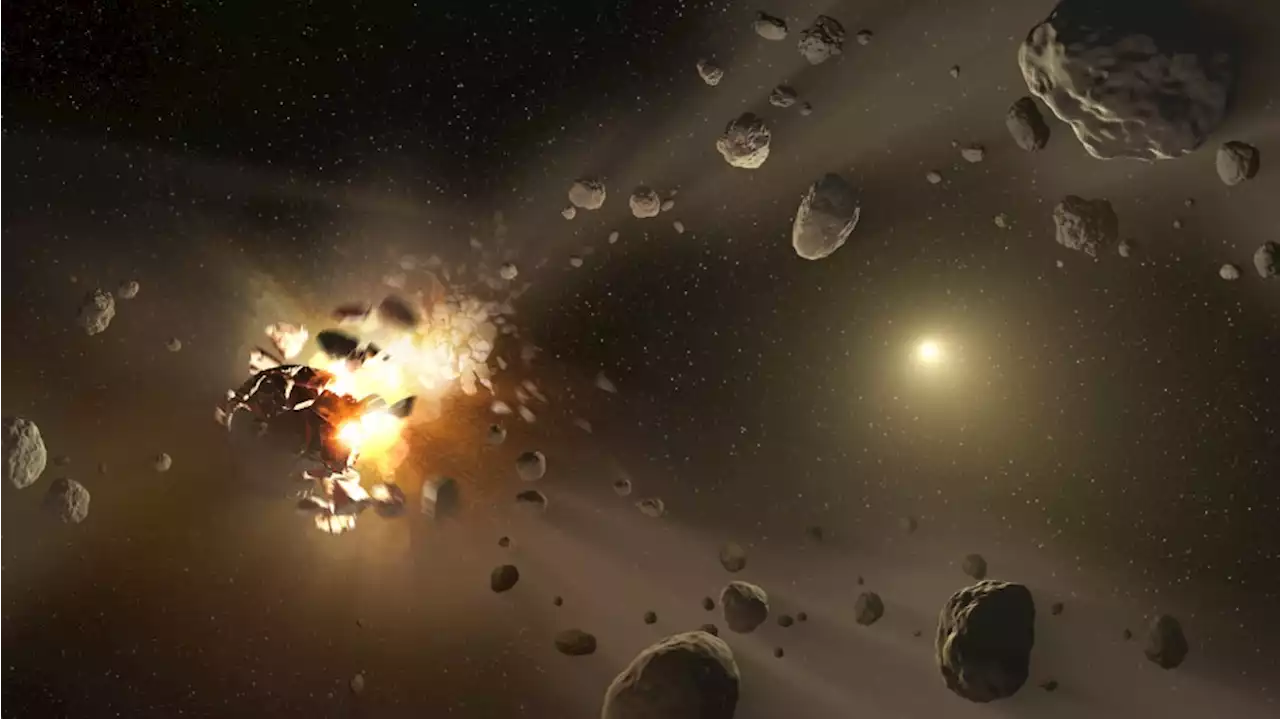Asteroid impacts do more than wipe out dinosaurs. They can also aid the emergence of life. Do other solar systems have asteroid belts?
. The group that leads Jupiter is called the “Greeks,” and the trailing group is the “Trojans.” Image Credit: By Mdf at English Wikipedia, Public Domain, https://commons.wikimedia.org/w/index.php?curid=1951518
An orbital resonance is when orbiting bodies exert regular and periodic influence on each other. There are different types of orbital resonances, and they’re expressed in ratios. Astronomers call the relationship between Saturn and the asteroid belt the. Secular means long-term, and v6 denotes the sixth planet from the Sun. The secular v6 resonance slows the eccentricity of asteroids until they cross Mars’ orbital path. Eventually, they’re ejected from the belt by a close encounter with Mars.
This table from the study shows the details of each of the three simulation runs. Columns 2 and 3 are the orbital radii of Jupiter and Saturn, respectively. The 4th, 5th and 6th columns show the number of asteroids that hit the Sun, the Earth, Jupiter and Saturn. Column 7 shows the number of asteroids that have been ejected. Column 8 shows the total number of asteroids with an outcome .
The authors point out that this list of solar systems with giant planets is anything but complete. It’s challenging to detect massive planets on wide orbits in distant planetary systems. But the fact that 4 out of 13 systems have orbital resonances in the right place to disturb asteroids out of their belts is still interesting. Of course, we don’t know yet how common asteroid belts are or their nature and composition in other systems. Our only guide is our own Solar System.
Astronomers are getting better and better at finding exoplanets as methods and technology improve. Soon, we may be able to detect asteroids belts, too. The James Webb Space Telescope will help with that.
United States Latest News, United States Headlines
Similar News:You can also read news stories similar to this one that we have collected from other news sources.
 Don’t Get Mad at Me When Don’t Look Up Wins Best PictureLike an asteroid destined to obliterate Earth, DontLookUp feels increasingly likely to win the Oscar for Best Picture, writes alisonwillmore
Don’t Get Mad at Me When Don’t Look Up Wins Best PictureLike an asteroid destined to obliterate Earth, DontLookUp feels increasingly likely to win the Oscar for Best Picture, writes alisonwillmore
Read more »
 Second asteroid ever to share Earth's orbit is a big one | Digital TrendsVery few asteroids share the orbit of Earth -- just two have been discovered to date -- and astronomers have recently confirmed the existence and size of one.
Second asteroid ever to share Earth's orbit is a big one | Digital TrendsVery few asteroids share the orbit of Earth -- just two have been discovered to date -- and astronomers have recently confirmed the existence and size of one.
Read more »
 Mars Could Have Been wet for Much Longer Than Previously Believed - Universe TodayAccording to new NASA-sponsored research, Mars may have had an ocean as recent as 3 billion years ago (500 million years longer than expected).
Mars Could Have Been wet for Much Longer Than Previously Believed - Universe TodayAccording to new NASA-sponsored research, Mars may have had an ocean as recent as 3 billion years ago (500 million years longer than expected).
Read more »
 Massive Rocky Planets Probably Don't Have big Moons - Universe TodayEarth's Moon is relatively large, and that fact gave rise to life on Earth. Why is it so large, and what types of exoplanets might also have large moons?
Massive Rocky Planets Probably Don't Have big Moons - Universe TodayEarth's Moon is relatively large, and that fact gave rise to life on Earth. Why is it so large, and what types of exoplanets might also have large moons?
Read more »
